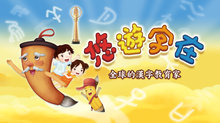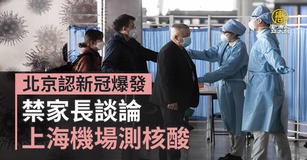【新唐人2011年4月23日訊】在大陸百姓飽受「瘦肉精豬內」威脅的時候,輸往港澳的肥豬卻是乾乾淨淨,長年沒有被檢測出「瘦肉精」。這起「一國兩豬」事件曝光後,引起外界的質疑。這背後說明甚麼問題呢?請看報導。
珠海出入境檢驗檢疫局官員說:「我們至今已保持了十一年沒發現瘦肉精的記錄。」
香港《東方日報》報導,自從廣東、香港爆發「豬肺湯事件」後,香港曾對大陸「生豬」供應說過「不」。因此,大陸食品監管部門就「一流產品外銷,二流產品內銷」。
《東方日報》認為,食品安全面前,應人人平等,又何必分個三六九等?為何港澳地區的標準,不能適用於大陸百姓呢?
經濟學家程曉農:「其實這個問題很簡單,歸根結底,就是大陸和香港兩地的政治制度不同。香港是有一定的新聞自由,也有一點的民主。那麼在大陸,大陸民眾沒有任何權利去約束政府,媒體也是中共的喉舌。在這種情況下,那老百姓確實只有白白的犧牲了。」
《BBC中文網》認為,中國的標準如此「內外有別”,讓人糾結,然而,卻不得不接受這個尷尬的事實。“內外有別」的標準,讓中國人很受傷害。
報導強調,歐盟幾乎是國際上公認對食品安全要求最嚴格的地區,中國企業生產的乳製品很難進入歐盟、美國等標準嚴格的市場。這說明人家是將老百姓的健康放在首位的,而中國則是將利益放在首位。
今年3月份,河南「瘦肉精」事件愈演愈烈,權威專家指出,調查研究發現,大陸中毒狀態的豬達到60%,包括瘦肉精、抗生素、重金屬、消毒藥的濫用。
瑞典研究機構早前宣佈,中國某些品牌生產的嬰兒食品含有砷、鉛等重金屬,存在安全隱患。但是,中國疾病預防控制中心通報,都沒有超出中國的標準。
程曉農:「這種政治制度,決定了食品安全問題在中國大陸,很自然的是一種政府不管,而老百姓又管不了的一種問題。所以,對這些食品製造商、食品生產者才敢於那樣肆無忌憚。」
正當中國的食品安全引起各界擔憂之際,為中共領導人提供安全食品的北京「特供處」卻門庭若市。
程曉農:「隨著全國食品安全成為越來越嚴重的問題,所以,中國(共)政府實際上是設立了,所謂特別食品供應基地,去滿足高層官員的需要。換句話講,中國政府只關心高層官員的特權,關心他們的食品安全,但是,並不關心老百姓的食品安全。」
中共機關老幹部活動中心、食品特供中心主任祝詠蘭,在中共國家機關特供產品授牌儀式上講過,成立於2005年4月的「特供中心」是「國務院機關老幹部活動中心,為國家(中共)機關特供有機食品的合作單位」﹔其生產機構遍佈13個省市,「一直為國家94個部委老幹部們提供優質、放心的有機食品」。這段話後來被當局刪除。
新唐人記者黃麗達、唐睿、李若琳採訪報導。
One Nation with Two Types of Pork
Though Chinese people have long been threatened
by “lean meat powder” (illegal use of clenbuterol),
none of those cases were ever found in the pork
exported to Hong Kong or Macao. Why the pork for
domestic use is so different from that exported?
Zhuhai customs inspection and quarantine official:
We found no clenbuterol abuse for 11 consecutive years.
According to Hong Kong Oriental Daily, Hong Kong
once refused to accept any pork imported from China
when the “pig lung soup incident” occurred in Guangdong
and Hong Kong. Since then, China's food inspection
department decided to export first-class products to
Hong Kong, leaving the 2nd class for domestic consumption.
Oriental Daily suggested that people be equal
in terms of food safety. Why could not the criteria
for Hong Kong be applied to Mainland China?
Economist Cheng Xiaonong: The reason is simple.
Different systems in HK and China caused the problem.
There are press freedom and some democracy in HK,
but in China, people are subordinated to the regime.
The media in China are also under the CCP's control.
Therefore, citizens have no other choices but suffering.
BBC Chinese commented that it was ridiculous
and awkward to have such a difference in China.
It was so heartbroken to Chinese people.
The report also stressed that EU was known for
the most rigorous food safety examinations,
so made-in-China dairy products are difficult to enter
the EU and the U.S. markets. This indicates that EU
and the U.S. give priority to the public health,
while in China, interests took the top place.
As the Henan “lean pork powder” incident intensified
over time, experts said about 60% pigs in China
had been affected due to the illegal use of antibiotics
heavy metal, clenbuterol, and disinfectants.
Swedish research institute earlier announced that
excessive amount of arsenic and lead was found
in some Chinese baby foods, but Chinese authorities
said it was acceptable based on Chinese standards.
Cheng: Such a political system in China caused
the food safety issue to be ignored by the government
and yet the people are too powerless to control it,
rendering food producers and merchants unbridled.
While food safety issues aroused international concerns,
the “Special Food Supplies” for the CCP officials
were booming for their safe foods.
Cheng: As the national food safety problems heighten,
the CCP regime set up the so-called special food supply
bases for the needs of high-rank officials, instead of
solving the problems for the entire nation.
In other words, the authorities only worry for
their own food safety but not for the ordinary folks.
Zhu Yonglan, director of the CCP's Special Food Supplies,
said in the inaugural ceremony in Apr. 2005 that
this special division was a co-op to provide safe, organic
foods to the Departments and the senior centers of
the State Council. Its production sites are located
over 13 provinces or cities. However, the wording
to describe this organization, “constantly providing
quality and safe foods to 94 senior officials』 centers of
the government” was later deleted by the authorities.
NTD Reporters Huang Lida ,Tang Rui and Li Ruolin
看下一集

【禁言博客】擺臭架子的縣委書記

【禁言博客】擺臭架子的縣委書記

【禁聞】華人眼中的425上訪 信仰的力量

【禁聞】從埃及到中國——訪人權活動家夏菲

【禁聞】學者:上海集卡司機罷工讓中共害怕

【禁聞】學者:上海集卡司機罷工讓中共害怕

【禁聞】中國家庭教會戶外禮拜 遭當局打壓

【禁聞】超生游擊隊 躲一子政策 居荒山12年

【禁言博客】打擊卡扎菲要明白的幾件事

【禁聞】“工資翻番論”民眾無信心

【禁聞】“工資翻番論”民眾無信心

【中國禁聞】清華校慶被諷如“黨中央開會”

【禁聞】清華校慶被諷如“黨中央開會”

【禁聞】自稱“黑作家”廖亦武出國再遭禁

【禁聞】自稱“黑作家”廖亦武出國再遭禁

【禁聞】有錢子女加分 沒錢只能裸考?






 財經趨勢4.0
財經趨勢4.0 新聞大破解
新聞大破解 新唐人財經新聞
新唐人財經新聞 選戰大透視
選戰大透視 遇見新聞
遇見新聞 老外看中國、老外看台灣
老外看中國、老外看台灣 美麗心台灣
美麗心台灣 田美女奉茶實客
田美女奉茶實客 廚娘香Q秀
廚娘香Q秀 大千世界
大千世界 1000步的繽紛台灣
1000步的繽紛台灣 好樣!Formosa
好樣!Formosa 健康1+1
健康1+1 談古論今話中醫
談古論今話中醫 我的音樂想想
我的音樂想想 胡乃文開講
胡乃文開講 她健康She Health
她健康She Health 天庭小子-小乾坤
天庭小子-小乾坤 總統教育獎
總統教育獎 全國孝行獎
全國孝行獎 健談交流
健談交流 悠遊字在
悠遊字在 傳奇時代
傳奇時代 音樂大賽特別節目
音樂大賽特別節目









